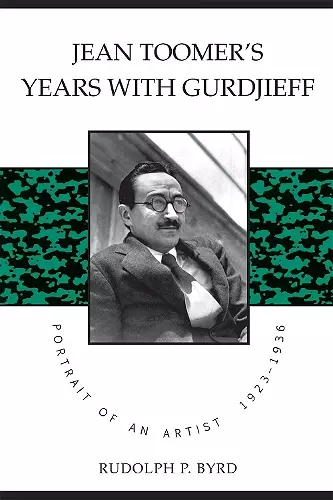Jean Toomer's Years with Gurdjieff
Portrait of an Artist, 1923-1936
Format:Paperback
Publisher:University of Georgia Press
Published:1st Aug '10
Should be back in stock very soon

Jean Toomer (1894–1967) earned his place in American literary history with Cane (1923), a brilliant modernist collage of fiction, poetry, and drama about black life in rural Georgia and the urban North. Although Toomer continued to write prodigiously, his work went largely unpublished as he turned away from an exploration of his African American roots he had employed so powerfully in Cane. Rudolph P. Byrd examines the central reason behind Toomer’s literary decline: his enthusiasm for the theories of George Gurdjieff, a contemporary Russian psychologist, philosopher, and mystic. As Toomer’s work degenerated into propaganda for Gurdjieff’s theories on human development and spiritual reforms, publishers turned away. Yet, Byrd makes clear that the works Toomer wrote after 1923 do not represent the total break from his earlier concerns that critics have generally assumed. Examining both Cane and the body of writings Toomer produced after it, Byrd finds a distinct thematic unity in the Toomer canon—a consistent, optimistic faith in human possibility and wholeness.
A creditable addition to the scholarship on a writer now firmly ensconced in American literary history.
* Times Literary Supplement *A compelling explanation for why Toomer lapsed into literary obscurity . . . The result is an absorbing story of a seminal figure in American literature. Byrd’s excellent study belongs on the same bookshelf as Nellie McKay’s Jean Toomer, Artist and Cynthia E. Kerman and Richard Eldridge’s The Lives of Jean Toomer.
ISBN: 9780820337777
Dimensions: 229mm x 152mm x 13mm
Weight: 454g
232 pages